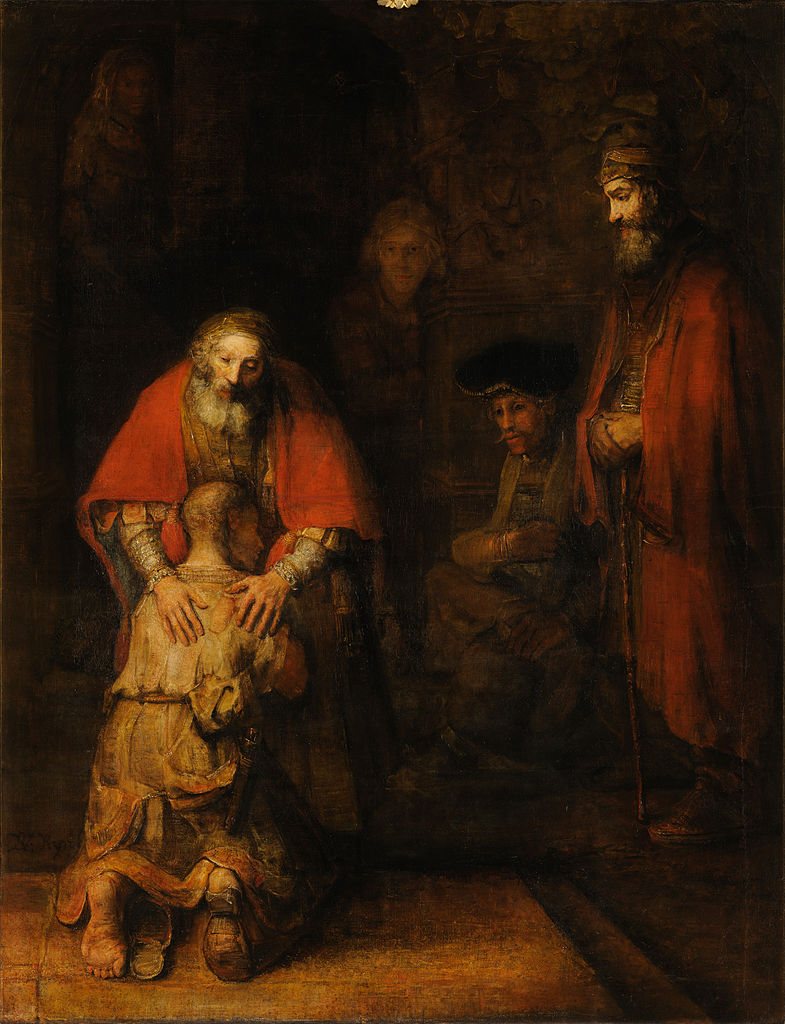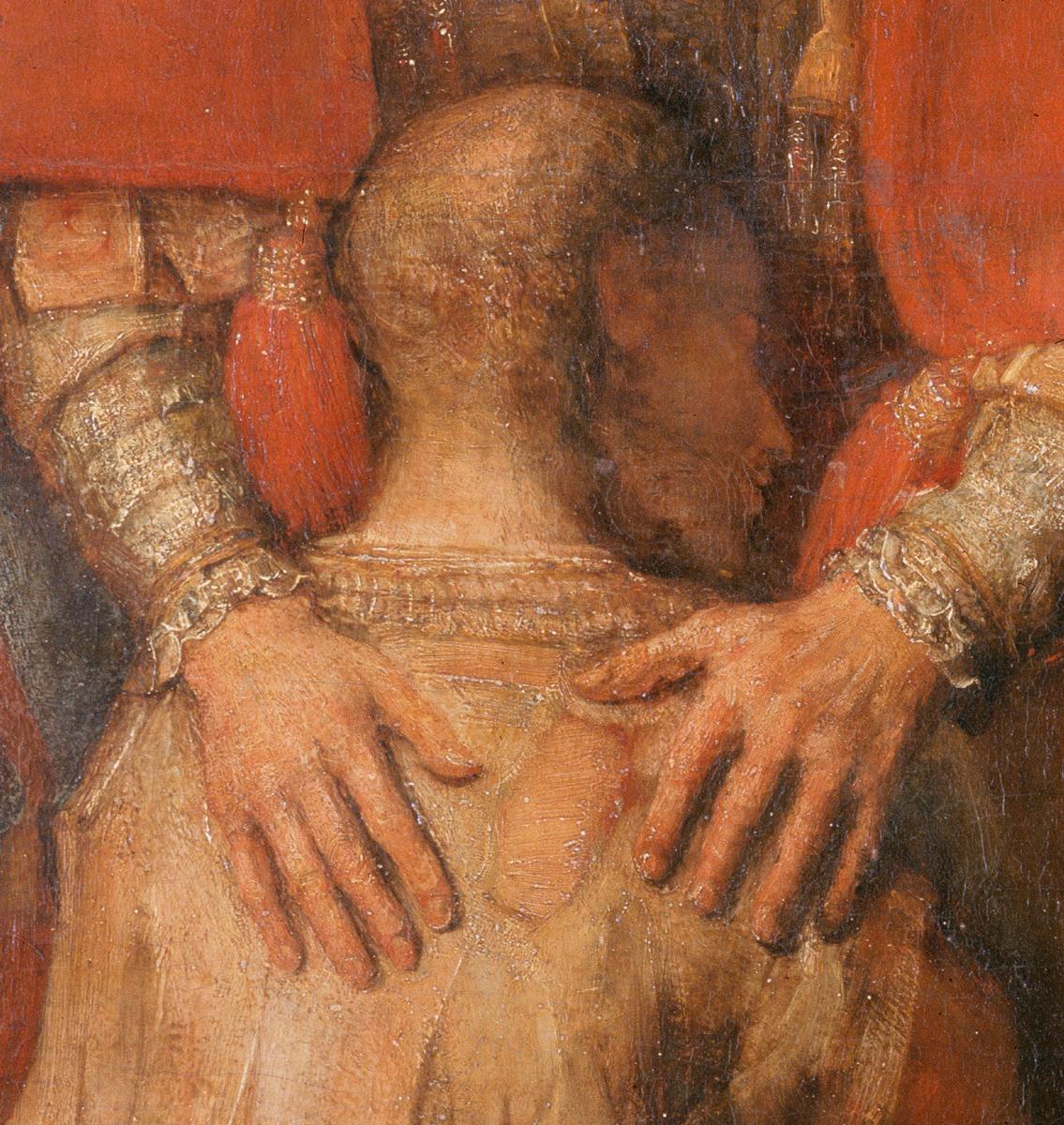March 9: Home
♫ Music:
WEEK 2—THE TEACHINGS OF CHRIST
Sunday, March 9—Day 5
“Do not judge, and you will not be judged; and do not condemn, and you will not be condemned; pardon, and you will be pardoned. Give, and it will be given to you. They will pour into your lap a good measure — pressed down, shaken together, and running over. For by your standard of measure it will be measured to you in return.”
Luke 6:37-38, Luke 23:34
Home
A few short months ago, Christmas was celebrated: God incarnate invading human history. Jesus came as God’s gift, and that gift would bring what every human being, created in the image of God, would need: forgiveness.
The parable of the Prodigal Son vividly depicts the love of the Father toward those who realize their need for and desire to be forgiven. We have all been prodigal sons and daughters who have broken the Father’s heart. In seeking to do things our own way, we prodigals squander much. At a moment of grace, we, like that prodigal son, are humbled enough to hear God’s ever-present invitation to return. Softly and Tenderly reminds us of the manner in which God calls prodigals home. Calling. Pleading.
Oh! for the wonderful love He
Has promised
Promised for you and for me
Tho' we have sinned He has mercy
And pardon
Pardon for you and for me
Our need is for God’s mercy. His aid is rendered to the miserable, the needy, the indebted, and those with no claim to favorable treatment. Because God is Mercy, He cannot help but be merciful, all the time. Mercy compelled the waiting Father to tear across the terrain to embrace his returning son. He stopped at nothing until he could feel the tattered-clothed, undernourished body of his son in his arms. God demonstrates his mercy in forgiveness.
This story would resonate with Rembrandt who was himself a prodigal and a friend to misfortune. Toward the end of his life, this famous painter realized and experienced the healing touch of the forgiving Father, powerfully depicted in the Return of the Prodigal Son. This masterpiece has inspired many, not least of these, Henri Nouwen, who spent hours over a couple days studying with intense gaze the strokes, color, shading and shadows to find his own intense response to the father’s embrace of his son. He reveals,
Here the mystery of my life is unveiled. I am loved so much that I am free to leave home. The blessing is there from the beginning. I have left it and keep on leaving it. But the Father is always looking for me with outstretched arms to receive me back and whisper again in my ear: You are my Beloved, on you my favor rests.
No matter what we’ve done or what our experiences with an earthly parent were like, the love and forgiveness of God our Heavenly Father is perfect and complete. Nothing is beyond the reach of this Father’s forgiveness. Nothing. His forgiveness knows no bounds. He’s been waiting for you. It’s time to come home, and for many, to come home again.
Prayer
Enable us to remember what thou art
and what we are,
to recall thy holiness and our unworthiness;
Help us to approach thee clothed with humility,
for vanity, forwardness, insensibility,
disorderly affection, backwardness to duty,
proneness to evil are in our hearts.
Let us never forget thy patience, wisdom,
power, faithfulness, care,
and never cease to respond
to thy invitations.
(Valley of Vision: A Collection of Puritan Prayers and Devotions)
Joanne Jung, Associate Professor of Biblical and Theological Studies
WEEK 2—THE TEACHINGS OF CHRIST
Day 5—Sunday, March 9
The Return of the Prodigal Son
Rembrandt van Rijn
Hermitage Museum, St. Petersburg
Oil on canvas
About the Artist and Art
Dutch painter, Rembrandt Harmenszoon van Rijn (1606-1669), is considered one of the top artists of all time. His contributions came during a period of great wealth and cultural achievement known as the Dutch Golden Age. Rembrandt's greatest creative triumphs are exemplified in the numerous scenes he painted from the Bible. Because of his empathy for the human condition, Rembrandt has been referred to as "one of the great prophets of civilization."
The Return of the Prodigal Son is among the Dutch master's final works, likely completed within two years of his death. This painting, with its evocative emotions of tenderness and the parable's message of forgiveness, has been considered the height of his art. Rembrandt was so moved by the Biblical parable that he made a variety of drawings, etchings, and paintings on the theme that spanned three decades — culminating with this magnificent final painting.
About the Music
Softly and Tenderly lyrics:
Softly and tenderly Jesus is calling
Calling for you and for me
See on the portals He's waiting
and watching
Watching for you and for me
CHORUS:
Come home, come home
Ye who are weary, come home
Earnestly, tenderly, Jesus is calling
Calling, oh sinner, come home
Why should we tarry when
Jesus is pleading
Pleading for you and for me
Why should we linger and
head not His mercies
Mercies for you and for me
Oh! for the wonderful love He
has promised
Promised for you and for me
Tho' we have sinned He has mercy
and pardon
Pardon for you and for me
About the Performers
From their inception, Selah has always been synonymous with the singing of hymns. In fact, the understated beauty of the trio’s 1999 debut, Be Still My Soul, helped initiate a hymn revival in Christian music that is still thriving today. Their discography has significantly re-popularized the church’s greatest songs while decorating the popular group with numerous Dove Awards, number one singles, sold out concert tours and over two and half million albums sold.
http://selahonline.com/
About the Composer
Ohio poet-composer Will L. Thomas wrote the lyrics and music for “Softly and Tenderly” in 1880. Thompson graduated from Mount Union College in Alliance, Ohio, in 1870. In 1873, he attended the New England Conservatory of Music and later continued his musical studies in Leipzig, Germany. He founded the W. L. Thompson Music Company and tried his hand with some success at secular compositions before finding his forte in hymns and gospel songs.

